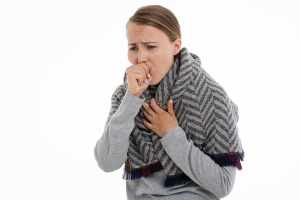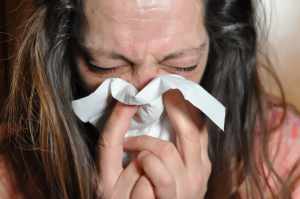In today’s COVID-19 ridden world, all became aware of a bunch of flu-related facts. Why? One might ask. The answer is being one’s fear of getting affected by the COVID-19 virus. Otherwise, people are generally oblivious to flu or influenza. They think it is a part of their life and that one might get flu and nothing to worry about. They will get some rest, eat lots of fluid and some medication, and fit soon enough. But then came COVID-19 in this world, compelling people to take any flu symptoms very seriously. That is why people are very serious and informative about any symptoms of the flu, its incubation period, and how contagious it is. To understand the concept of the flu incubation period, first, one needs to know what flu is. So, without further ado, let’s begin.
Table of Contents
What is flu?
The common flu, also known as influenza, is an illness that is caused by viruses. So the common flu is a viral infection in which your respiratory tract and lungs get affected.
In the lungs, the common flu viruses develop as time passes by. Once you get this viral infection in high load, you will start to feel the symptoms. The influenza virus’s general symptoms may primarily include high fever, breathing problems, and muscle pain.
This viral infection is very contagious. It spreads from one person to another through the medium of droplets. In other words, this flu spreads through the secretion of the lungs or nose. Now suppose, a virus affected person sneezes and coughs without any protection in his mouth or nose. Then the person standing right in front of him has a high chance of getting affected by inhaling those droplets.
What is flu season or seasonal flu?
The viruses that cause common flu or influenza circulate in the atmosphere throughout the year. But it becomes more activated or more likely to affect a person during the fall and winter seasons. That is why; this particular season is known as the flu season, and the flu is called seasonal flu.

What is the flu incubation period?
One does not start to show flu symptoms immediately after getting the virus. There is a certain gap between getting the virus and showing the symptoms of the virus. This gap between these two events is called the incubation period of influenza. The flu incubation period is generally one to four days. But it also depends on the viral load of the person and his immunity. Lower the viral load, longer it will take time to show symptoms. Similarly, the stronger the immunity power, the longer he will take time to show symptoms. Apart from that, the flu incubation period also depends on how the virus steps into your body. If the virus enters your body through special routes, then it takes less time to affect your body and show symptoms. The more the route is difficult for the virus, the more the incubation period of influenza.

When is the flu contagious period?
Once you get the common flu virus, you start to spread the virus to other people. Once you start to spread the virus, you become contagious to another person. Generally, you start to spread the virus from the day before you start to show symptoms. Then you stay contagious for the next five or seven days. So, these five to seven days can be called the flu contagious period for you. Again, this contagious period may vary from person to person. People with enfeebling immunity power may stay contagious for a longer period of time. When you are contagious, you release the virus to the surrounding environment. This phenomenon is called viral shedding. Generally, the first day you show symptoms is the day you are most contagious.
How does the flu spread?
As we have briefly mentioned earlier, flu generally spreads through droplets, known as respiratory particles. These respiratory particles release from your contagious body when you sneeze and cough. So now, if you, the contagious one, cough or sneeze in a crowded area, then you are endangering many people. Other people inhale those droplets and infect themselves.
One can also have an infection if he comes in contact with surfaces or objects which contain viral droplets. Now, if you touch those contagious surfaces or objects, your hands become contaminated. Then if you touch your eyes, mouths, or nose with your contaminated hand, you might get infected.

How does one can stop the spread of the virus?
The first thing that one can do when they have a viral infection is to stay away from people. If you are contagious and you roam around congested public places, then you are endangering many lives. So if you got the flu, try to stay at home. Do not come in human contact before curing of fever for more than twenty-four hours. It would help if you also washed your hand frequently with soap or hand sanitizers, especially after you touch your mouth, nose, or cough, sneeze in your hand. Always try to cover your mouth or nose while coughing or sneezing. It also helps in reducing the spread of contagious droplets.
What are the common symptoms of flu?
The most common symptoms of flu include fever. One will suffer from high fever, generally over 101 degrees of Fahrenheit. With this high fever comes menacing pain in muscles from the different parts of your body. We have mentioned earlier that influenza or flu is a viral infection in the respiratory tract and lungs. So the next common symptoms of flu being a running nose with frequent coughing and sneezing.
Before you come to the symptoms of coughing and sneezing, you might suffer from a sore throat. After these, you might also suffer from breathing problems and tightness in the chest. The condition might make you feel fatigued. The extreme level of fatigue will stop you from even getting out of your bed.

